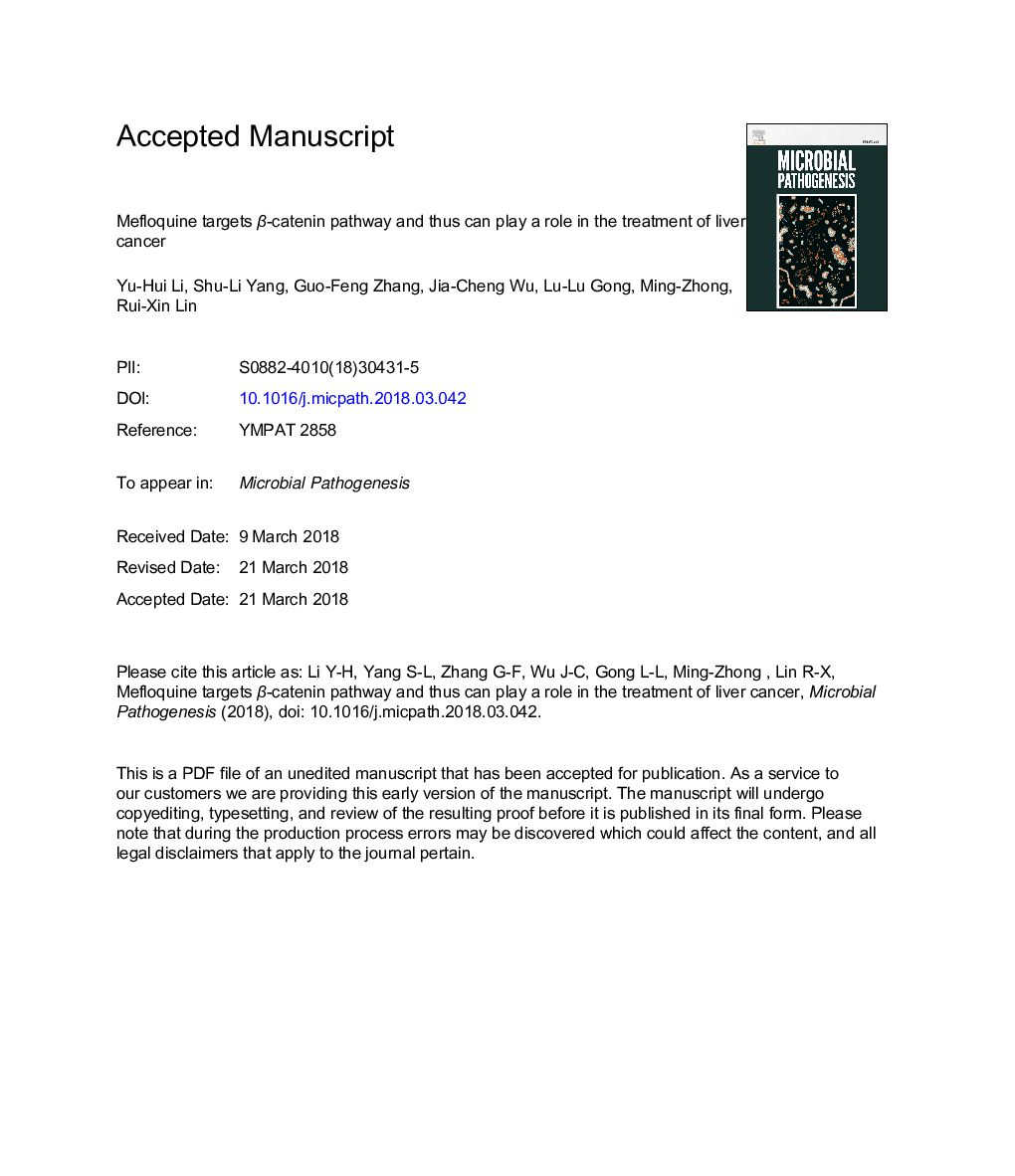| کد مقاله | کد نشریه | سال انتشار | مقاله انگلیسی | نسخه تمام متن |
|---|---|---|---|---|
| 8749599 | 1593671 | 2018 | 17 صفحه PDF | دانلود رایگان |
عنوان انگلیسی مقاله ISI
Mefloquine targets β-catenin pathway and thus can play a role in the treatment of liver cancer
دانلود مقاله + سفارش ترجمه
دانلود مقاله ISI انگلیسی
رایگان برای ایرانیان
کلمات کلیدی
موضوعات مرتبط
علوم زیستی و بیوفناوری
ایمنی شناسی و میکروب شناسی
میکروب شناسی
پیش نمایش صفحه اول مقاله

چکیده انگلیسی
The current study was designed and performed to investigate the effect of mefloquine on the proliferation and tumor formation potential of liver cancer stem cells. CD133 + HepG2 cells were identified using MACS and showed markedly higher tumor formation potential compared to the parental cells. The secondary tumors formed by CD133 + cells were markedly large in size and more in number compared to the parental cells. Mefloquine treatment of CD133 + HepG2 cells inhibited the proliferation selectively in concentration based manner. The rate of proliferation was inhibited to 82 and 12% in parental and CD133 + sphere forming cells, respectively on treatment with 10 μM concentration of mefloquine. The number of secondary tumors formed by primary tumors was decreased significantly on treatment with 10 μM mefloquine concentration. Treatment of the liver cancer stem cells with mefloquine markedly decreased the potential to undergo self-renewal at 10 μM concentration after 48 h. The results from western blot analysis showed significantly higher expression of cancer stem cell molecules β-catenin and cyclin D1 in LCSCs. Treatment of the LCSCs with various concentrations of mefloquine reduced the expression levels of β-catenin and cyclin D1. Administration of the CD133 + cell tumor xenografts in the mice led to the formation of large sized tumors in the control group. However, the tumor growth was inhibited significantly in the mice on treatment with 10 mg/kg doses of mefloquine after day 21. The tumor weight was significantly lower in the animals of mefloquine treatment group compared to the control group. Thus, mefloquine treatment inhibits self-renewal and proliferation potential of cells through targeting β-catenin pathway.
ناشر
Database: Elsevier - ScienceDirect (ساینس دایرکت)
Journal: Microbial Pathogenesis - Volume 118, May 2018, Pages 357-360
Journal: Microbial Pathogenesis - Volume 118, May 2018, Pages 357-360
نویسندگان
Yu-Hui Li, Shu-Li Yang, Guo-Feng Zhang, Jia-Cheng Wu, Lu-Lu Gong, Ming-Zhong Ming-Zhong, Rui-Xin Lin,